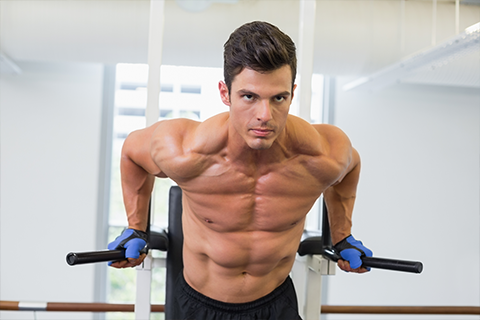
How Do Gym Goers Feel After Quitting BCAA?

"I
stopped taking BCAAs. Did I just sabotage my gains?” If you’ve ever asked this or felt a twinge of guilt skipping your intra-workout drink, you’re not alone.
Branched-Chain Amino Acids (BCAAs) have become a gym staple. They’re marketed as muscle-preserving, fatigue-fighting, and recovery-boosting. But what happens when you stop taking them? Do your workouts suffer? Does soreness spike? Or, do you feel exactly the same?
Let’s unpack the real experiences of gym-goers who’ve quit BCAAs without the hype, without the fear, and with a whole lot of honesty.
Also Read: BCAA – The Best Pre-Workout Supplement
First, What Are BCAAs and Why Do People Take Them?
BCAAs are three essential amino acids—leucine, isoleucine, and valine that play a key role in muscle protein synthesis and energy production during exercise. They’re especially popular among:
-
Fasted trainers
-
Calorie-cutting athletes
-
Vegans or vegetarians with lower complete protein intake
-
Gym-goers chasing faster recovery
But here’s the twist: if your diet already includes enough high-quality protein, your body likely gets all the BCAAs it needs.
Also Read: Top 5 Budget-Friendly Whey in India
So, What Happens When You Quit Taking BCAA?
We spoke to real gym-goers, reviewed the science, and broke it down into three categories: physical, mental, and performance-related changes.
1. Physical Changes: What Your Body Feels

“I stopped BCAAs and didn’t notice much difference.” This is the most common response. If you’re eating enough protein through Whey, eggs, meat, or soy, your body continues to receive BCAAs naturally.
But some gym-goers report:
-
Slight increase in soreness, especially during high-volume training
-
Longer recovery windows, particularly when cutting calories
-
No muscle loss, unless overall protein intake drops
Science check: Leucine is the key driver of muscle protein synthesis. It’s abundant in Whey protein, which makes BCAA supplementation redundant for many.
Also Read: The Best Supplements For Endurance Sports
2. Mental & Habitual Effects: What Your Mind Feels
“I missed the ritual more than the results.” BCAAs often become part of a gym routine, a brightly coloured drink, a sense of readiness, a placebo boost. Quitting can feel like breaking a habit.
Common mental shifts:
-
Placebo withdrawal: Feeling less “energized” or “protected” during workouts
-
Supplement guilt: Worrying you’re missing out on gains
-
Freedom: Realizing you don’t need to carry a shaker everywhere
Real quote: “I used to sip BCAAs religiously. When I stopped, I felt weird for a week. Then I realized I was just hooked on the habit not the effect.”
Also Read: The Best Supplements For Beginners At The Gym
3. Performance Impact: What Your Workouts Feel Like

This varies based on your training style and diet.
-
Fasted training: You may feel a dip in endurance or increased fatigue
-
Calorie deficit: Recovery might slow slightly, especially during cuts
-
High-protein diet: No noticeable change in performance
Study spotlight: Research shows BCAAs can reduce exercise-induced muscle damage but only when dietary protein is insufficient.
Also Read: BCAA & Fasted Cardio – What’s The Connection?
Interactive Moment: Quiz Yourself
Let’s test your supplement intuition.
Q1: Can you build muscle without BCAAs? ✅ Yes. Whole protein sources provide all essential amino acids.
Q2: Do BCAAs improve performance for everyone? ❌ No. Their benefits are conditional, not universal.
Q3: Is quitting BCAAs harmful? ❌ No. There are no withdrawal effects.
Q4: Should beginners take BCAAs? Depends. If protein intake is low or training is intense, they may help.
Also Read: Mistakes You Make While Using BCAA Supplements?
Should You Restart BCAAs?
Here’s a quick decision guide:
|
Situation |
Restart BCAAs? |
|
Training fasted |
✅ Yes |
|
Cutting calories |
✅ Yes |
|
Vegan/vegetarian diet |
✅ Yes |
|
High-protein diet |
❌ Not necessary |
Real Stories from the Gym Floor
Ravi, 29, CrossFit Athlete “I used BCAAs religiously during my cut. When I stopped, I felt more sore for a few weeks. But once I upped my protein and added creatine, I didn’t miss them.”
Neha, 34, Strength Trainer “I quit BCAAs after switching to whey isolate. Honestly, I felt no difference. I realized I was spending money on something my diet already covered.”
Arjun, 22, Fasted Morning Lifter “I train at 6 AM without breakfast. BCAAs helped me push through. When I stopped, I felt sluggish. I added them back and felt better instantly.”
Also Read: Which Is Better For Bulking – BCAA or Creatine?
Final Word: Supplement Smarter, Not Harder
Quitting BCAAs isn’t a fitness failure—it’s a chance to reassess your stack. If your diet is solid and your training isn’t extreme, you may not need them. But if you’re cutting, training fasted, or following a plant-based diet, BCAAs can still be a smart tool.
At AS-IT-IS Nutrition, we believe in science-backed simplicity. Our BCAA blend is designed for real results, not just rituals…
Whether you’re starting, stopping, or stacking, we’re here to support your journey—with transparency, integrity, and clean-label confidence…







Leave a comment